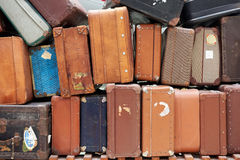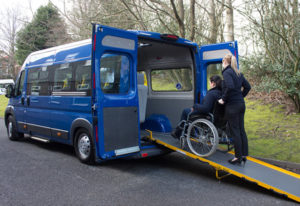
South America is not out of reach for travelers with disabilities. Photo from riodejaneiro.com
Continuing our series on traveling with a medical condition — written by British freelance journalist Laura Miller — we’ll focus today on traveling with a disability.
If you missed Laura’s first post in the series, you can read her top tips for traveling with a medical condition here.
Laura provides a wealth of tips and advice that I’m sure many baby boomer travelers — and their traveling partners — will find helpful and reassuring.
By Laura Miller
In today’s world, travel isn’t restrictive. Regardless of whether you’re fit and healthy, have a physical impairment, learning disability, or any other condition, there’s no reason to avoid traveling.
You can visit even the most exotic of destinations: from South America to Southampton, a disability shouldn’t stop you from seeing the world.
Here’s how:
Planning & packing for your holiday
For any trip to be a success you need to thoroughly prepare for the adventure. As such, packing will be an important part of the process and you’ll have to double check you have everything you need.
While preparing for your getaway, be sure to ask the following questions:

While you may need extra luggage, keep in mind your space requirements while packing
• What is the duration of your trip?
• Will the temperature or humidity cause any problems?
• What medications will you need to take?
• Do you have specialist equipment?
• What are the luggage restrictions on the plane, ship, or train you’re taking?
After these initial questions, you should be able to start planning properly for the trip. When traveling with a disability, check with your airline to see if a mobility scooter can be taken onboard, and make sure to stock up on an ample supply of any prescription medications.
Now you’ll need to start making a list of everything you need for a safe and enjoyable holiday.
This would include all the usual suspects such as clothes and toiletries, through to any specialized equipment and medications you may need.
Consider the climate of where you’re traveling to as well – don’t forget the sun cream and hat if you’re going to the tropics, desert, or anywhere hot and sunny.
If on the other hand, you’ll be expecting colder weather, consider a waterproof jacket, extra layers and a coat. You’ll also want some warm pairs of shoes.
Medications, pharmacies, doctor’s letters, and more

Don’t let yourself get down to your last pill — bring extra prescription meds and info you may need at a pharmacy abroad
Medications will be vital to your packing.
You’ll need to plan for the length of your trip and ensure you have enough for both the duration plus a little extra, in the event of delays. While many countries overseas will have some excellent pharmacies to replenish your medication, language barriers can be a hindrance.
If you do need to visit a pharmacy during your trip, be sure you know both the name of the medication and what it does – this should help you out somewhat in translation.
Whenever you’re traveling overseas you should always carry a doctor’s letter with you that outlines your disability, the medications you take, and the conditions of your health.
Depending on your impairment or disability, if you’re flying and need extra assistance, your airline may ask you to complete a form detailing your conditions and the medications you’re taking. This is known as a Medical Information Form (MEDIF) and varies from airline to airline. You should be able to print this form off from the airline’s website.
Travel insurance is also crucial — potentially saving you from having to pay out big medical bills and expenses abroad.
You’ll want to consider the equipment you require as well. Think of it as extra luggage you’ll need to bring along for your travels.
Make a note of everything you need and contact the airline to find out if they’ll have to make specific arrangements. For instance, those with a mobility scooter may need to remove the battery and have it stored separately during travel.
Arranging for transport abroad
After getting off the plane in your chosen destination, you could well be in a non-English speaking country.

A minibus with ramps can accommodate wheelchairs.
So if you have a disability and need to arrange transport to your accommodation, make sure to plan ahead and ensure everything’s in place for your arrival.
First, you’ll need accessible transport that has enough room for yourself, any fellow passengers and your equipment. Book ahead and arrange a taxi or minibus that can provide this. Let the taxi firm know you’ll need a larger space (if required), ensuring you get all your equipment onboard.
Whether you’re traveling to the airport at home or abroad, give yourself plenty of time to get there.
Plan to arrive three hours in advance, as this will give you a bit of leeway should you suffer delays or traffic en route, or delays at airport check-in and security
You should also make sure to know your rights as a disabled traveler, in the event you have difficulty boarding the plane at either end. If you need extra time or assistance, take advantage of early-boarding procedures offered by most airlines.
Booking accommodation for your holiday
When you book accommodation, your top priority should be finding accessible lodgings.
Fortunately, there is a wealth of suitable accommodations for people with all disabilities, but you do need to make sure to check by calling or emailing the lodging directly — and ask specific questions.
For instance, depending on your disability, you may require ramps or elevators (lifts) to access rooms above the ground floor. Requesting ground floor accommodation could help avoid difficulty.

If you’re staying at a resort, check the nearby terrain. Photo from Paradise Beach Resort Nevis.
Research the surrounding area and terrain before booking a resort. Even if a hotel is accessible and can cater to all your requirements, the landscape nearby may not be suitable.
Use Google’s Street View to get an idea of what’s local, including any shops or supermarkets.
The room’s facilities will also be important. Your disability may require hand bars, lower wardrobes and easy access showers. An accessible room should be fitted with all the above.
Day-to-day activities
Travelling abroad isn’t about being cooped up in your hotel all day.
Don’t let your disability or impairment prevent you from seeing the sights and wonders of the world. Of course, what’s feasible will depend on your condition, but there’s no reason why you shouldn’t be able to take part in some snow sports, visit the pyramids of Egypt, or ride a train to Peru’s Machu Picchu.
If you’re traveling with disabled children, you have plenty of options as well.
Depending on your resort, water parks and attractions are all accessible for travelers with disabilities, so you can still visit as a family.
Check what facilities are available before making a booking and ensure your requirements can be met.
Emergency situations
Depending on the region you’re traveling to and what you plan to do when abroad, emergency situations may arise.

A green cross symbolizes a pharmacy in much of the world.
Whether it’s calling local authorities or visiting a hospital for treatment, this can be stressful when you’re in a foreign country and can’t speak the language.
First, find out where your nearest pharmacy and hospital are. This will save precious time if an emergency situation does occur. You’ll know exactly where to go and the best route to take in order to arrive safely. Try to stay calm at all times and keep a level head when possible.
It’s also helpful to learn some basic phrases in the language of your destination. For instance, you may want to find out the names of certain medical conditions and the medication you’re taking, which can be very useful when trying to talk to a doctor.
Note down the right emergency number to call as well. Throughout Europe, the emergency number is 112; in the UK, it’s 999, while in the United States you’ll need to dial 911.
Click the following link for a complete list of emergency numbers throughout the world.
For specific reviews of travel insurance companies and their products, see this excellent guide from reviews.com.












One Response to Traveling Comfortably With a Disability